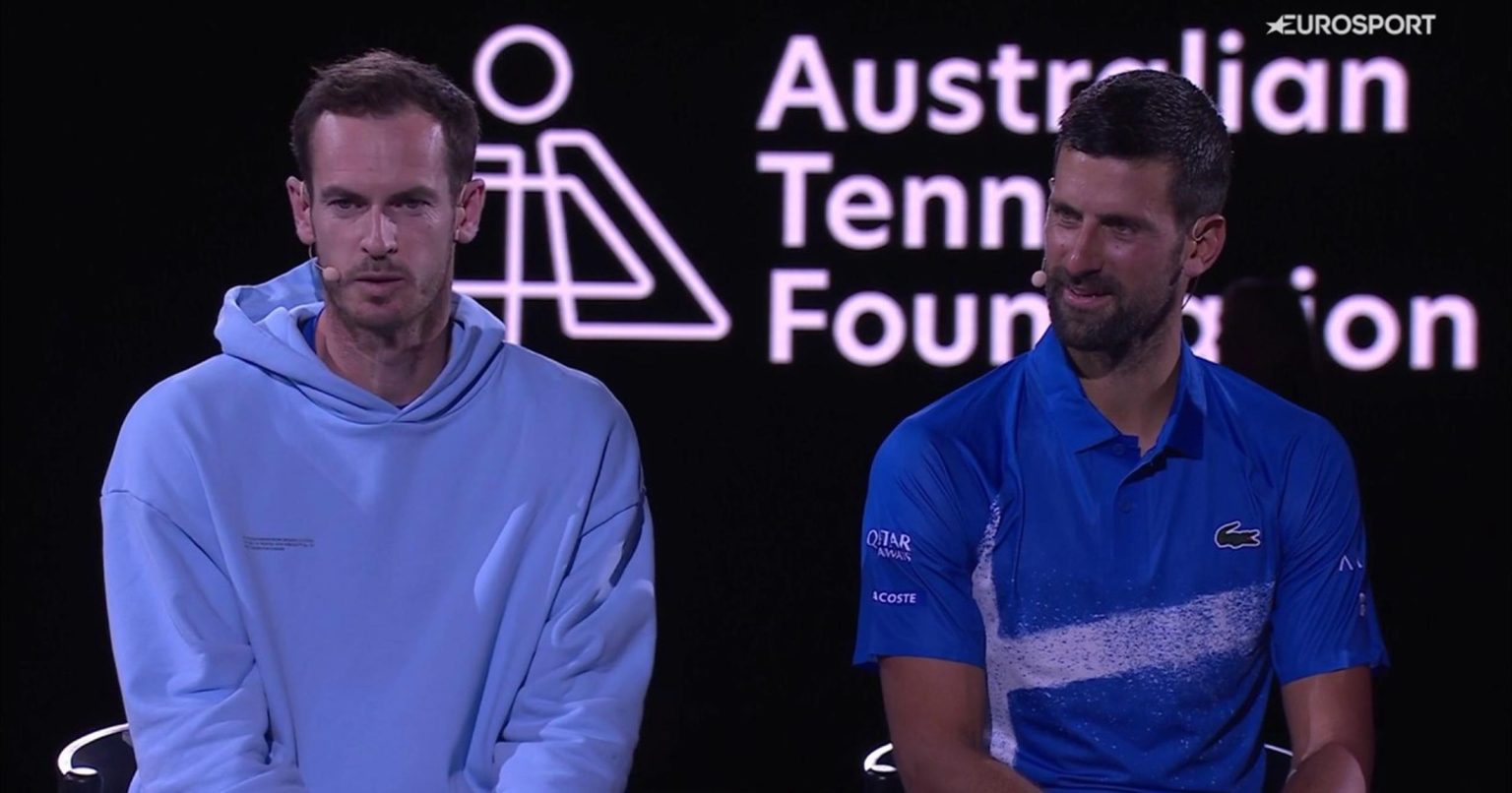The tennis world was sent into a frenzy with the unexpected announcement that Andy Murray, the formidable British three-time Grand Slam champion, would be joining forces with his long-time rival, Novak Djokovic, as his coach for the 2025 Australian Open. This unprecedented partnership between two titans of the sport, who have shared a storied and often fiercely competitive history, has sparked intense speculation and debate among fans, commentators, and former players alike. The announcement comes at a crucial juncture in both players’ careers, with Murray transitioning into a mentorship role after a series of injury setbacks, and Djokovic seeking to maintain his dominance in the face of emerging talent. This surprising alliance raises numerous questions about the dynamics of their relationship, the strategies they will employ, and the ultimate impact on Djokovic’s performance at the upcoming Grand Slam.
The rivalry between Murray and Djokovic has been one of the defining narratives of modern tennis. They have clashed on the court 36 times, with Djokovic holding a slight edge in their head-to-head record. Their battles have spanned epic Grand Slam finals, grueling five-set encounters, and tense exchanges that showcased their contrasting styles and mental fortitude. Murray, known for his relentless defense, tactical acumen, and unwavering fighting spirit, often pushed Djokovic to his limits. Djokovic, renowned for his exceptional return of serve, court coverage, and mental resilience, consistently found ways to overcome Murray’s challenges. Their matches have been characterized by high-quality tennis, dramatic momentum shifts, and a palpable sense of mutual respect, even amidst the intensity of competition. This history adds a layer of complexity to their new coach-player dynamic, raising questions about how their past rivalry will influence their present collaboration.
The decision by Murray to embrace coaching, particularly at this stage of Djokovic’s career, marks an intriguing turn in the Scotsman’s journey. After achieving remarkable success, including Olympic gold medals and multiple Grand Slam titles, Murray has been plagued by persistent hip injuries that have hampered his ability to compete at the highest level. While he has shown glimpses of his former brilliance, his body has ultimately prevented him from consistently challenging the top players. This transition into coaching suggests a recognition of his physical limitations and a desire to remain involved in the sport at the elite level. Murray’s deep understanding of the game, his tactical prowess, and his experience competing against the very best make him a valuable asset to any player seeking to improve their performance. The fact that he has chosen to work with a long-time rival, someone he knows intimately both on and off the court, speaks volumes about their mutual respect and shared ambition to achieve greatness.
For Djokovic, the partnership with Murray represents a calculated move to maintain his position at the pinnacle of men’s tennis. Despite his continued success, Djokovic is aware of the inevitable challenges posed by the next generation of players. The rise of young stars hungry to dethrone him necessitates a constant evolution of his game and a willingness to embrace new perspectives. Murray’s insights, honed through years of competing against Djokovic himself, offer a unique advantage in identifying weaknesses and developing strategies to counter the emerging threats. Moreover, Murray’s experience navigating the pressures of Grand Slam competition can provide invaluable mental and emotional support to Djokovic as he strives to add to his already impressive Grand Slam tally.
The potential benefits of this partnership are multifaceted. Murray’s intimate knowledge of Djokovic’s game, combined with his own experience as a top-ranked player, provides a unique perspective that could prove invaluable in refining Djokovic’s tactics and improving his performance. Murray’s ability to analyze opponents’ strengths and weaknesses, combined with his understanding of the mental and emotional demands of Grand Slam tennis, could give Djokovic a crucial edge in high-pressure situations. Furthermore, the presence of a familiar face and a respected voice in his corner could provide Djokovic with the emotional support and encouragement he needs to overcome adversity and maintain his focus. The dynamic between the two, forged through years of intense rivalry, could also foster a healthy competitive environment that pushes Djokovic to constantly strive for improvement.
The Australian Open in 2025 presents a unique opportunity for this newly formed partnership to make a statement. The tournament holds special significance for Djokovic, being the Grand Slam where he has enjoyed the most success. It is also a tournament where Murray has reached the final five times, demonstrating his ability to perform well on the hard courts of Melbourne. Their combined experience and understanding of the conditions could prove to be a winning formula. The tennis world will be watching closely to see how this unlikely alliance plays out and whether it can propel Djokovic to further Grand Slam glory while simultaneously launching Murray’s coaching career in spectacular fashion. The 2025 Australian Open promises to be a captivating tournament, rife with storylines and brimming with anticipation. The Murray-Djokovic partnership is undoubtedly one of the most intriguing narratives, and its impact on the tournament, and potentially the future of tennis, remains to be seen.


